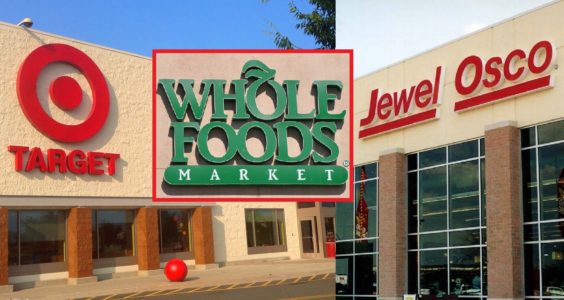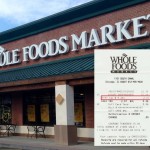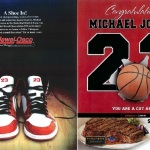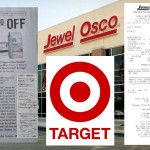An Illinois man has reached settlements with two retailers, and appears poised to settle with a third, after he sued them all for overcharging him by a combined total of $1.46.
Chang Wong sued Whole Foods in January, claiming that the store wrongly charged him $1.39 in sales tax, when he used a store coupon while paying for his groceries. A month later, he sued Chicago’s Jewel-Osco grocery chain, for overcharging him by a nickel when he used a coupon to buy coffee. And a week later, he sued Target for overcharging him by two cents.
Now, he’s agreed to settle his lawsuits against Target and Jewel-Osco. Whole Foods has also now signaled a willingness to settle, suggesting that it will do so if Wong agrees not to seek class action status for his case.
Terms of the settlement agreements were not disclosed, and neither Wong’s attorneys nor representatives for Target responded to requests for comment. Jewel-Osco declined to discuss specific terms, but spokesperson Melissa Hill told Coupons in the News that Jewel-Osco “will not be instituting any changes with our current process of collecting sales tax” as a result of the settlement.
Even without knowing the terms, a settlement may be as good as a win for Wong, considering that many others who have sued over coupons and sales tax, never got a chance to settle at all.
In the Whole Foods case, Wong used a $15-off-your-total-purchase store coupon when buying his groceries. But he was charged sales tax on his pre-coupon total of $22.39, instead of his post-coupon total of $7.39.
And Illinois state law, like most other states, makes a distinction between store and manufacturer’s coupons. When using a manufacturer’s coupon, you’re charged sales tax on the pre-coupon total. But store-issued coupons reduce your taxable total.
The Target and Jewel-Osco cases were slightly more complicated. At each store, Wong used a manufacturer’s coupon to buy Starbucks coffee. And each store charged him sales tax on the pre-coupon total – just as the law requires them to.
But the Starbucks coupons didn’t include any wording to the effect that the “consumer is responsible for any sales tax.” So Wong argued that since Starbucks never formally shifted the tax burden onto him, he didn’t owe sales tax on his pre-coupon total – Starbucks did.
It was certainly a novel argument. And apparently not one that Target or Jewel-Osco wanted to try to refute in court.
That’s even though many similar lawsuits involving coupons and sales tax have been thrown out of court altogether. In a number of other cases over the years, judges have determined that if a retailer overtaxes a customer and sends that tax money to the state, the proper course of action is for the customer to appeal to the state for their money back – not to sue the retailer.
But that doesn’t take into consideration that retailers are often allowed to keep a small percentage of the sales tax they collect, as reimbursement for serving as the state’s tax collector. So by miscalculating the tax rates on sales involving coupons, not only can retailers end up sending too much money to the state, they get to keep more money for themselves as well. So Wong argued he did indeed have a beef with the retailers that overcharged him, and not just the state.
Some legal experts argue that laws about coupons and sales tax are needlessly complicated, and unfair to both consumers and retailers.
“It is impractical to expect a sales clerk, upon being handed a pile of coupons, to quickly differentiate between manufacturer and retailer coupons, and charge sales tax accordingly,” a team of attorneys from the law firm Reed Smith argued in a recent essay for JD Supra. “Vague sales tax laws and the growing administrative burden of multistate taxation conspire to cause well-meaning businesses to, in some cases, inadvertently collect the wrong amount of tax on certain discounted sales.”
It should be noted that Wong also has a lawsuit pending against Domino’s Pizza, for charging sales tax on the delivery fee for a pizza he ordered. He argues that only the pizza itself was taxable. The amount he says he was overcharged? 72 cents.
Wong may not be losing much by overpaying sales tax on everyday purchases. But he sure stands to earn a lot – as long as he keeps taking his complaints to court.
Image sources: JeepersMedia , Jobmouse
, Jewel-Osco















They didn’t want to mess with the Wong guy!
I think the tax info should be included on all the coupons. Usually, tax is paid on the pre coupon total, not the total after deducting from coupons. I’m getting a feeling that Illinois is going to change and just tax everything for the full amount regardless of the cost after coupons. This is going to make couponing in the state of Illinois worst. Pretty soon manufacturers and stores are just going to stop giving customers coupons and discounts because people are so quick to sue. Did he get any money from these companies or what, exactly what did he win. What’s the point if he is not going to get any more money in is pocket. Did these three store cut him a check for thousands of dollars or did he just do this to make a point. He is making it bad for the consumers in Illinois. If he thinks that he can purchase items and not pay taxes on it, then he is living in a wonderland, you have already saved money, don’t be so greedy. I understand his frustration but all this litigation is for nothing considering that the no one else can benefit from these lawsuits. The consumers will get nothing in the long run but higher prices.
Anna, your comments are all over the place. Why will Illinois have to change anything and why will it make things worse for consumers, when the state law already says that you pay tax on manufacturer’s coupons? And there is no reason to have that information on a coupon because it differs by state.
I live in illinois & coupon & always have to pay the sales tax. Even when my receipt says 100% savings I still have to pay the sales tax. I would never think to sue over it. This man has a lot of time on his hands!!
This guy is ridiculous. The only one he has a valid point on is Whole Foods, because clearly a store coupon should have reduced sales tax. In fact, I just noticed a problem at a Whole Foods in CT where I was charged sales tax pre-coupon, and that is definitely wrong because in CT, manufacturer’s coupons deduct sales tax. I’ve been meaning to email them about it, but I was not planning to sue. For the other situations, even if the coupon doesn’t say that the customer has to pay sales tax, manufacturer’s coupons never reduce sales tax expect in a handful of states (PA and CT among them).
As for his lawsuit with Domino’s, he might want to check IL state law. In NY, delivery charges are taxable. Of course, I’m sure that won’t stop him from suing other places.
Good for Wong, he probably wouldn’t have to do this if states would step up and protect consumers. Publix notoriously charges tax on store coupons as well as Walgreens. There are also loopholes in the tax codes that can get the retailers a nice chunk of change back at the end of the year when all taxes etc. have the final reconciliation. I have filed complaints with the state before and they just go unheard and unfortunately 99% of us are not going to follow through and try to sue. So again good for him it is the principal of the matter and the stores are wrong.